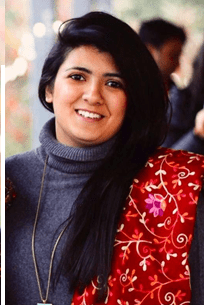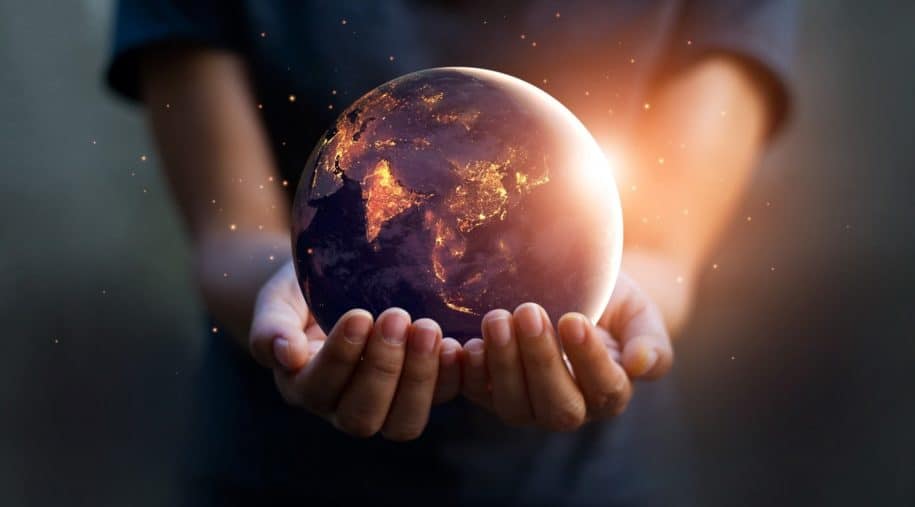In 2015, the UN Sustainable Development Goals were launched with the embedded motto of “No one left behind.” The goals serve as reminders and the proverbial “to-do” list for all 193 signatory countries that adopted the SDGs to pursue ending extreme poverty, reducing inequalities, and protecting the environment. This was symbolically the first time that the international community recognized the need to prioritize the care of those who are normally left behind, vulnerable people who are the most disenfranchised in society (children—especially girls; refugees and migrants; rural farmers and indigenous populations, and those living on the margins). The SDGs also recognize the importance of citizens and their role in society to solve global crises (e.g., poverty, inequality, and climate change). The responsibility to achieve global sustainable development is placed on individual citizens, and they are also the main beneficiaries of the results of that achievement (through the principle of broad inclusion and participation).

Similarly, throughout the Conference of Parties (COP26) last year, there was a significant emphasis placed on the importance of individual action in solving the global climate change crisis and a global pandemic. During the Glasgow Climate Change Conference, world leaders focused on reducing emissions to limit the rise in global temperature to 1.5°C, according to science-based targets. When these global leaders went back to their states and nations, the role of reducing emissions was delegated to governments (local and national), institutions, corporations, civic action groups, and NGOs—all led and populated by individuals.
When it comes to solving global issues, such as the recent pandemic and climate change, individuals may feel that their actions and choices are controlled by external situations and governing institutions and therefore can afford very little impact on the overall plight. However, it is important to recognize that citizens are the ones who most understand the value of good governance, social development, and positive impact on the environment. Very often it may feel as if external situations and institutions control our choices, but individual action builds collective action. Individuals taking action is the basis for how society has historically fought against discrimination and injustice throughout the world.
“Never doubt that a small group of thoughtful, committed citizens can change the world.
Indeed, it is the only thing that ever has.” – Margaret Mead
How the environmentalism movement was created
Rachel Carson is a historic example of how the actions of an individual can significantly change a society’s stance on sustainable development and environmental justice. She is best known for her book Silent Spring, which she wrote after receiving a letter from a friend that informed her of a large decline in the Cape Cod region’s bird population that had been caused by chemical (DDT) sprayings. Carson used her background in zoology to study the situation and document the detrimental effects of pesticides on wildlife and nature. According to Carson, a single application of DDT on a crop not only impacted the targeted insects but countless more species, remaining in the environment long after its initial distribution and causing cancer and genetic damage to animals (even humans). Carson’s book brought to light the severe impact that human actions can have on nature (i.e., the environment and food supply). The need for environmental control and government regulation of industry activities was realized, making way for the modern environmental movement. Despite the criticism her work elicited, Rachel Carson’s efforts led to the passage of the Federal Environmental Pesticide Control Act of 1972, which banned the use of DDT for agricultural purposes. Carson’s success encouraged a grassroots movement, and ultimately, the creation of the US Environmental Protection Agency (EPA), along with several important pieces of legislation to protect air and water.
Within the world of sustainable development, the importance of role models should be center stage. The far-reaching contributions of Rachel Carson and many others are largely unknown or overlooked. Highlighting such role models offers the average citizen encouragement in daily choices and inspires alternative ways of thinking and acting, creating more pathways to a sustainable world.
How can individual citizens solve global problems?
As we have seen exampled by Rachel Carson’s story, change begins with the individual citizen. There are many ways that we as individuals can help fulfill world-changing objectives (such as the SDGs) that aim to solve giant problems and push for the end of poverty, inequality, and the climate change crisis. Here are some everyday actions for making an impact:
From home:
- Save electricity by turning off appliances and unplugging them when not in use.
- Switch to paperless billing and notifications.
- Use social media to investigate and promote ideas and inventions that focus on solving climate change, reducing emissions, or fighting for minorities’ rights.
- Speak up and communicate with local and national representatives to engage in initiatives that reduce the negative impact on the planet and people.
- Support businesses that have a demonstrated history of caring for the environment, reducing emissions, and other causes that promote sustainable development.
- Stay informed about happenings around the world, especially extreme weather events, to better understand how vulnerable people are affected by environmental dangers.
- Participate in the Climate Neutral Now Initiative.
- Recycle, reuse, and buy items with minimal packing to reduce waste.
- Take shorter showers and fewer baths to reduce your water usage.
- Introduce more plants into your diet, instead of meat, poultry, and fish. The production of meat consumes more resources than the production of plants.
- Freeze fresh produce and leftovers if not consuming them right away. According to the UN Environment Program’s (UNEP) Food Waste Index Report 2021, of the total 931 million tons of annual food waste, 61% comes from households.
- Compost food scraps at home to divert waste from landfills and recycle nutrients.
- If possible, install solar panels in your home to reduce emissions from the production of on-grid electricity (and your monthly bill).
- Lay a rug in the main living spaces of your home and plug air leaks in windows and doors for added insulation and keeping your thermostat down.
- Switch to LED bulbs and (if possible) newer, energy-efficient appliances. (Remember to recycle your old ones!)
- Do not use plastic, gas-filled lighters that utilize petroleum products.
From work:
- Fight for equal benefits for your coworkers (e.g., health insurance, sick leave, annual leave, access to sanitation, etc.) if any inequality exists.
- Take advantage of community programs to mentor the young people around you.
- Identify whether a gender pay gap or other forms of discrimination exist at your workplace; voice your support for equal pay for equal work.
- Make sure your workplace uses energy-efficient heating and cooling technology and encourage others to adjust the thermostat to avoid energy waste.
- Make sure your organization invests in clean and resilient infrastructure throughout its supply chain to keep workers safe and protect the environment.
- To reduce emissions and conserve energy, bike, walk, or take public transport to work. If you live in the same area as coworkers, set an example by establishing a carpool.
- Organize a No Impact Week for you and your coworkers to practice sustainable living.
- Investigate whether recycling and paperless options can be utilized at your workplace.
- Communicate with your company leadership, encouraging recognition and adoption of a corporate responsibility strategy.
No matter how many of these changes you are feasibly able to adopt, any change—regardless of its size and scale—makes a difference in the fight for a better world. A committed individual can positively contribute to a better society and planet. If we’ve learned anything from the pandemic over the past two years, it is how far-reaching and impactful (for good and not-so-good) the private decisions and efforts of the individual citizen can be.
Author Bio

Fatima Fasih
Experienced in corporate sustainability in both developed and emerging markets, Fatima Fasih has over 5 years of experience in advising businesses on their sustainability strategies and reporting. She also assists businesses in identifying their progress on the UN Sustainable Development Goals.
Currently, working as an independent Sustainability Consultant, Fatima holds a Master’s degree in Sustainability Management and Bachelor’s degree in Health Sciences and Environmental Science from the University of Toronto.
She is also certified a Greenhouse Gas Inventory Quantifier (GHG-IQ) and aims to work towards pushing businesses to play a larger role in solving the world’s biggest sustainable development problems: hunger, poverty, and inequality.



